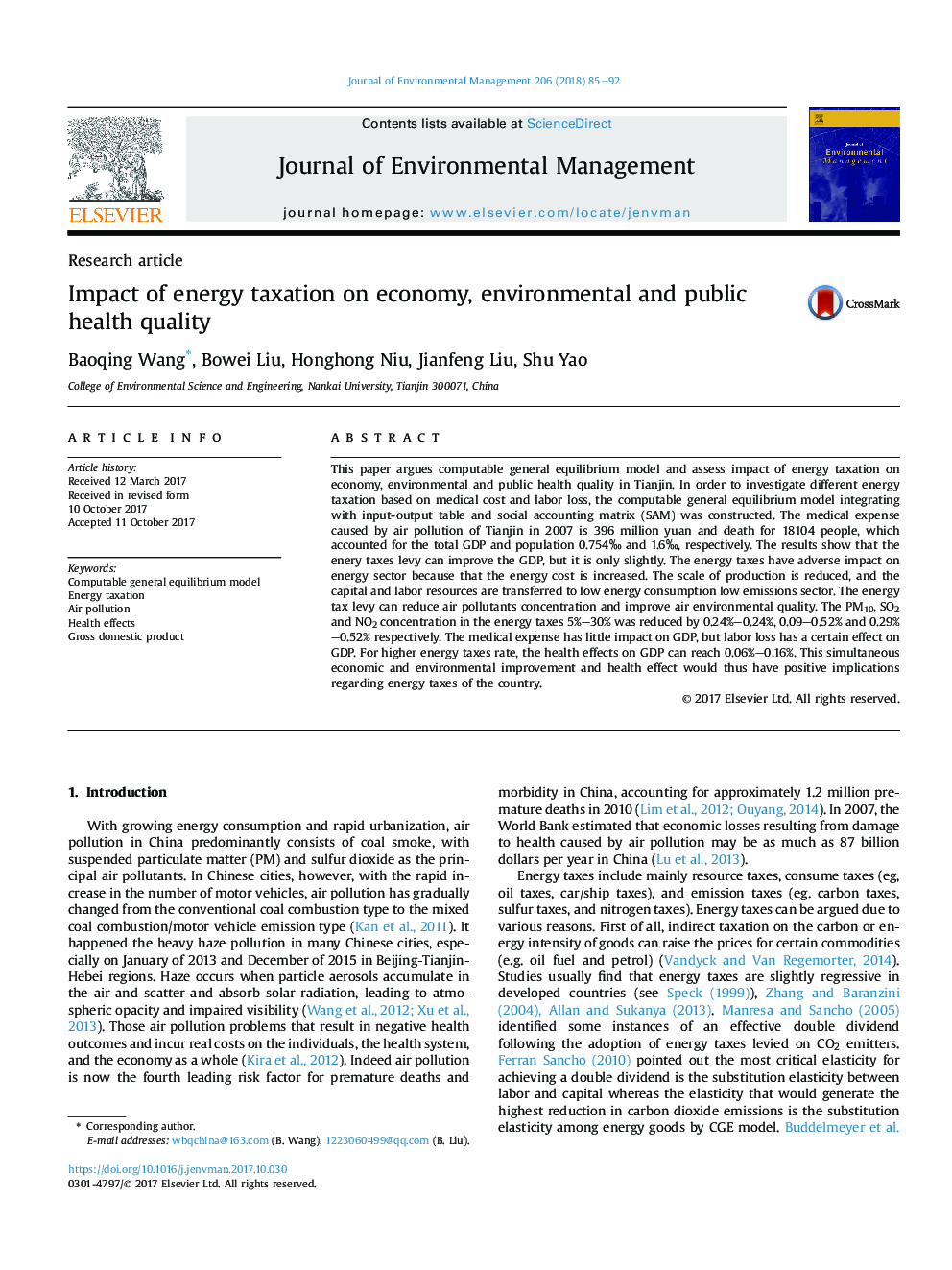| Article ID | Journal | Published Year | Pages | File Type |
|---|---|---|---|---|
| 7478600 | Journal of Environmental Management | 2018 | 8 Pages |
Abstract
This paper argues computable general equilibrium model and assess impact of energy taxation on economy, environmental and public health quality in Tianjin. In order to investigate different energy taxation based on medical cost and labor loss, the computable general equilibrium model integrating with input-output table and social accounting matrix (SAM) was constructed. The medical expense caused by air pollution of Tianjin in 2007 is 396 million yuan and death for 18104 people, which accounted for the total GDP and population 0.754â° and 1.6â°, respectively. The results show that the enery taxes levy can improve the GDP, but it is only slightly. The energy taxes have adverse impact on energy sector because that the energy cost is increased. The scale of production is reduced, and the capital and labor resources are transferred to low energy consumption low emissions sector. The energy tax levy can reduce air pollutants concentration and improve air environmental quality. The PM10, SO2 and NO2 concentration in the energy taxes 5%-30% was reduced by 0.24%-0.24%, 0.09-0.52% and 0.29%-0.52% respectively. The medical expense has little impact on GDP, but labor loss has a certain effect on GDP. For higher energy taxes rate, the health effects on GDP can reach 0.06%-0.16%. This simultaneous economic and environmental improvement and health effect would thus have positive implications regarding energy taxes of the country.
Keywords
Related Topics
Physical Sciences and Engineering
Energy
Renewable Energy, Sustainability and the Environment
Authors
Baoqing Wang, Bowei Liu, Honghong Niu, Jianfeng Liu, Shu Yao,
